So while I was visiting Chennai, the parliament of India elected their next President. A woman named Pratibha Patil, a member of the ruling party of the government, which made it no surprise, and in fact hardly even newsworthy. I wouldn’t even have known about the election except for a lovely conversation with the principal of the school we visited that morning, and the occasional mention of a changing of the guard in the newspaper (the farewell speech of the old Pres made the cover page rather than the swearing in of the new one … interesting). Anyway, Grace has mentioned that this is the first occasion on which a female is the leader of the largest democracy in the world, and one of the nations growing as an economic power to match it’s population domination. The truly interesting point, though, is how out of place this feels when you’re in the country, among the men and women there, and how the latter are treated.
Women are respected, I guess, but nor revered in India. In fact, on several occasions we female guests were ignored by men who wanted to talk with the five male members of our group. I saw men go ahead of women to get on a bus, and men were often served drinks and food before we were. That’s not to say that women were treated poorly. There were some at the stores we visited and quite a few employed at the five start hotels we used. But they weren’t seen often. As I mentioned on my first day in Delhi, we simply didn’t see any women. It wasn’t until the second city, Varanasi, that Geoff noticed women riding motorcycles by themselves. The female principals we met were treated like queens, but when we met with male school leaders we learned that this had more to do with the position than with their gender. The male teachers at every school seemed to hold a more revered status than the women, and they refer to the gentlemen as “sir” more than I heard anyone refer to them as “miss” or “madam.”
And so there is this juxtaposition. Many of the women don’t leave their houses during the day and the ruler of the democratic nation is female. Is this a sign of the development of this country? Or is it the corruption of the political system? Or perhaps a signal that ancient traditions are fading away. Maybe it’s just a coincidence. When I asked some teachers and administrators at the Atomic Energy Schools what it meant for them to have a female president, they explained that because the citizens are not part of that election process it doesn’t affect them very much. The Presidential election in India is not a participatory process – only the parliament casts vote for the leader and for years now the elected official has always been the leader or representative of the political party with the greatest numbers in the parliament. And so the citizens with whom I spoke felt very disconnected from the whole thing. These citizens were, of course, men.
All that said, please know that we were treated very well in every part of India. It is simply interesting to see some of the differences between our cultures. I was never part of a family or a place where the women stay at home, and I have only lived in a country where women have the right to vote (now) and are getting equal pay (or something close). I don’t know enough about what’s happening in India to know if these privileges are missing for women there, but hope to learn more. I met a lot of powerful and very smart women. I think I wrote already that one of our speakers said that out of 100 girls who start school in Class I, only one will graduate from Class XII. But the schools I saw and the women I met are proof against that statistic, I think. For the country is filled with bright, thoughtful, successful, and talented women who are fulfilling their dreams and wear beautiful smiles to match their saris.
Subscribe to:
Post Comments (Atom)




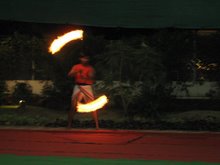








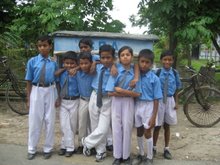
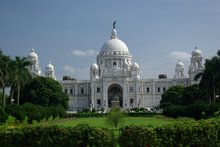
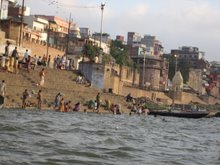


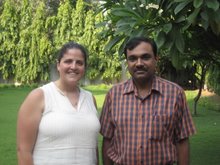
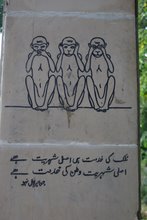
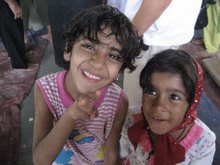

1 comment:
Ms. Zinn,
I notice a certain "feminist" tone to a lot of your writing and trying to convey a sense of undervaluing or outright discrimination for women in India. As a teacher at the ISA, I would advise you to be more careful and responsible with your editorials.
The post of the presidency in India is more or less an honorary position and can me more equated to the role of the Senate Majority Leader in the US (not exactly, but you get the point). This is why many people do not care for this election or who currently holds the post -- not because it is a woman who was elected.
The Prime Minister post holds the actual leadership position in the country. I am amazed that you did not pick up on that while you were in India.
We are not the Middle East and our culture is not as rigid as reading through your blogs may lead someone to believe.
I am reading through a lot of your blog, and as an Indian, I am glad you had a chance to visit and understand more of the culture, but I think I can see a lot of the American way of thinking in your writing, and I would be happy to discuss this with you if you were interested.
Post a Comment